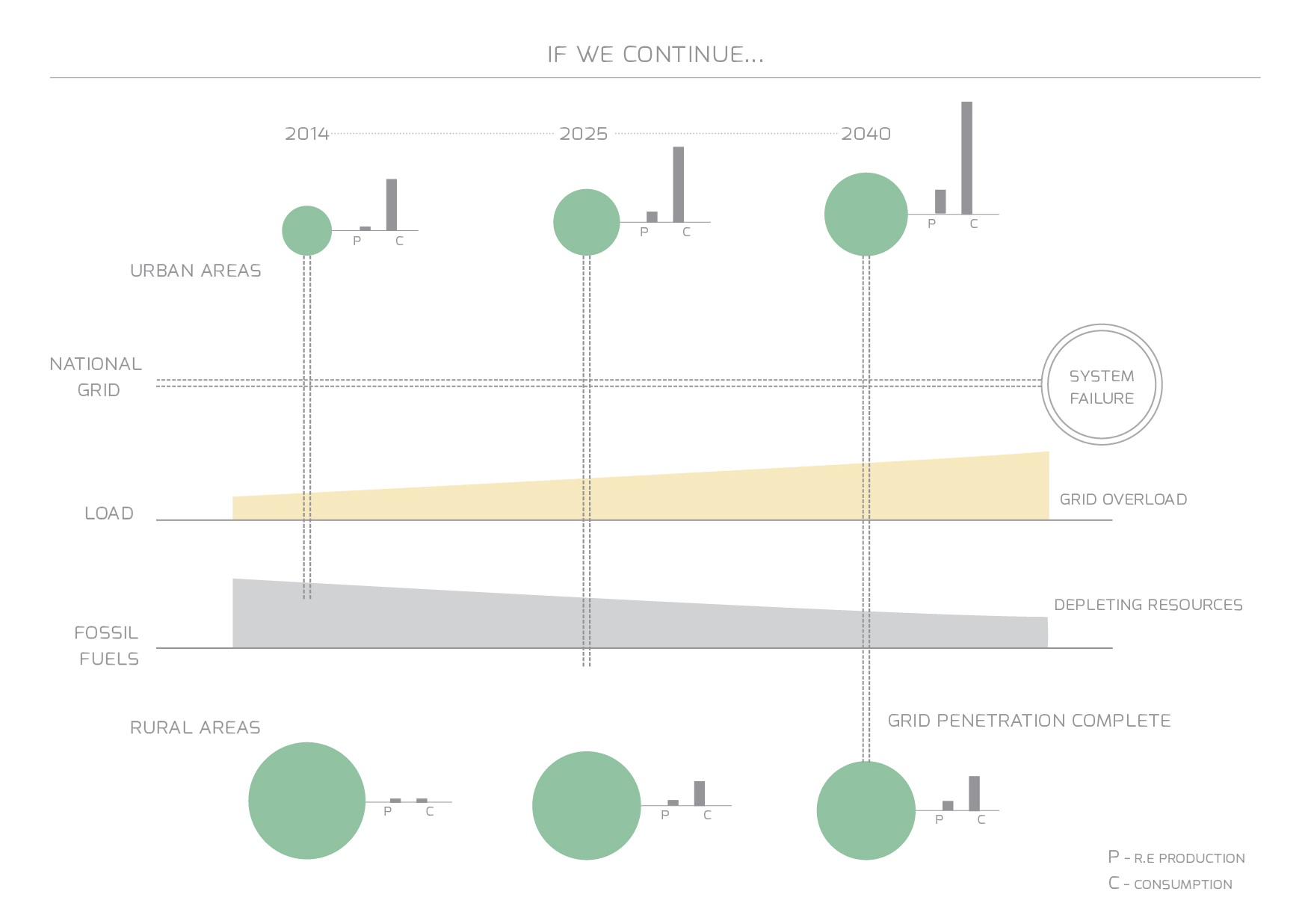
CLASSROOM PROJECT
Guide: Praveen Nahar
TEAM PROJECT
Burhan-ud-din Khateeb
Manish Minz
Pranay Arun Kumar
Manisha Laroia
DURATION
10 weeks | 2014
A detailed documentation of the project is available on our blog: DesiWickedProblems
/ ABOUT
The project brief was taken up based on our day-to-day frustration of power cuts and the discussions circulated by Forum of the Future. An India-specific study was conducted attempting to illustrate and document the wicked electricity system with its multi-fold factors and the plethora of stakeholders.
/ THE PROCESS
Our team, DesiWickedProblems started by asking some fundamental questions about electricity production, distribution and consumption; met several stakeholders, dug deep into the system network of policies, politics and economics surrounding it.
We collated the research, used different methods of analyses and synthesis to design a framework for building solutions for a Decentralized Electricity System.
/ Energy Future of India
A system inquiry into the problem of Access to Electricity in India. The study informed a Decentralized People-Centric Energy Model for India's Energy Future.

What makes access to electricity a wicked problem?
Most of the developing world still live in darkness. In India alone, 400 million people have irregular or no access to electricity. The prevalent socio-economic diversity creates disparity in the access to electricity.
Adding to it the system is ever evolving, dependent on numerous interplaying factors varying from macro ones like government policies to micro ones like electricity theft and over-consumption due to lifestyle practices. Our research was sourced from research papers, news, reports, documentaries, expo visits and interviewing experts & stakeholders.


What factors influence the access & supply of electricity?
The Study involved understanding the present system in terms of accessibility and sustainability. The research incorporated a megatrend study, outlining the contributing factors, product-service life-cycles, analysing electricity production and usage data and interacting with stakeholders.
Extensive mapping of the data defined underlying patterns revealing the complex network of flows, threats, opportunities, feedback loops and latent links that add to the delicacy of the system.

How much electricity do you get? Find your avatar...
India is a diverse country with very diverse people and thus varying needs. Designing solutions for satisfying these needs is where the wickedness of the system lies. There is a huge socio-economic disparity which creates diversity in the access and usage of electricity.
'Personas’ served as instrumental nodes in understanding user-behaviour, user-needs and highlighting the demand for context-specific solutions that work coherently within the system. Each persona represents a group of people with similar lifestyles, needs and contexts. We built 5 Personas based on their access to and usage of Electricity.

What can we predict about the future of electricity?
We conducted a mega trend study to see how these factors would appreciate or depreciate in the coming year. To build a vision for the future we need to understand what is happening around the world, what has happened in the past, what works and what does not.
From case-studies we drew out the inter-relatedness of the factors and its impact on the stakeholders. Then we worked on these discovered relations to foresee a trend. We developed future scenarios from now to 2040 and then developing our Plan of Action for Access to Electricity.

The Decentralized Model. Let's make our own electricity!
The Decentralized electricity model is to give everyone the access to electricity and enabling them to generate it themselves. The development of a people-centric model is essential to deal with the complexity of the electricity system in India.
Empowering people and enabling them to collaborate is at the core of the decentralized electricity concept. It encourages people to grow out of their current avatar, taking up new roles and responsibilities and looking for opportunities for the benefit of themselves and the community.


Access to Electricity-A Case Study for a Decentralized People-Centric Energy model for India
RSD7, The 7th Relating Systems Thinking and Design Symposium, 2018

System Map Poster selected for exhibition.

A detailed documentation of the project is available on our blog:



